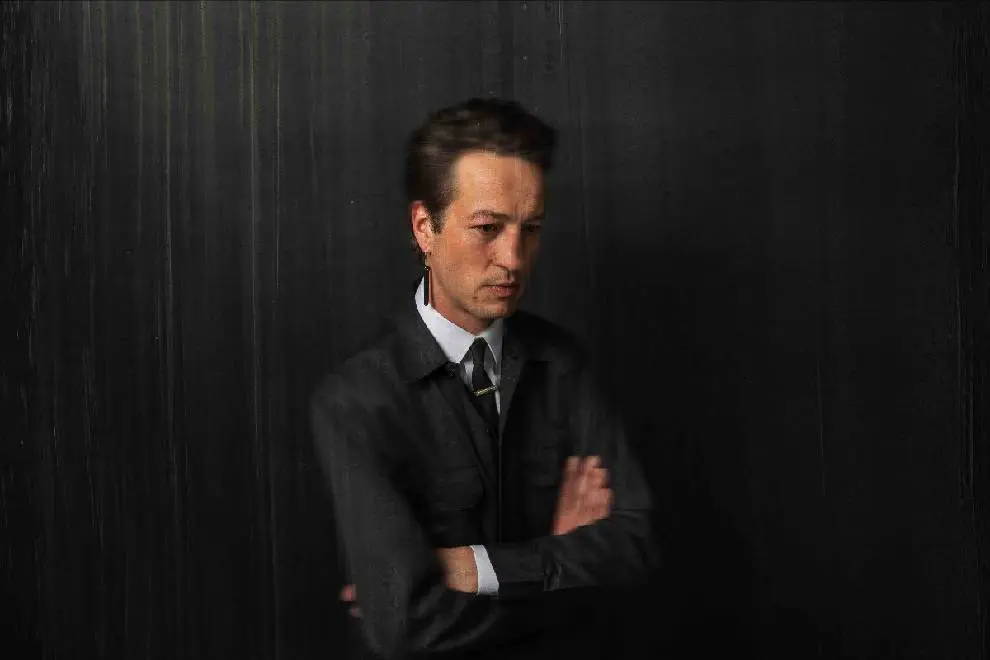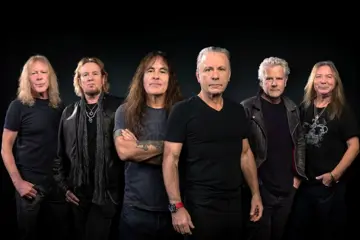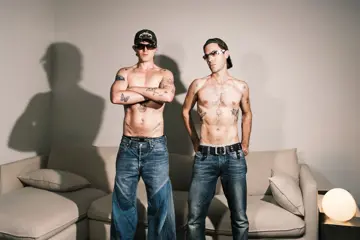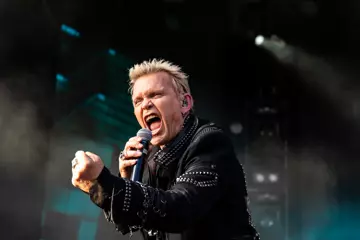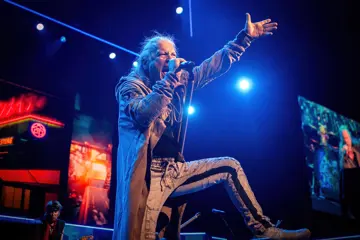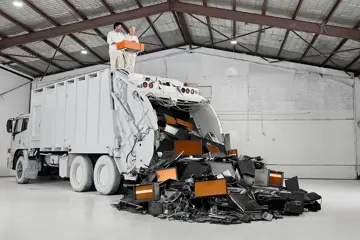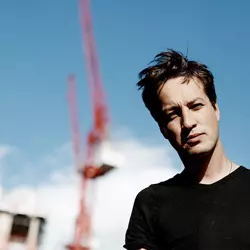 Marlon Williams
Marlon WilliamsFor anyone who has ever had the privilege of listening to New Zealand-born musician Marlon Williams, the first thing you notice is that it's a truly intimate experience.
His music speaks to his audience on a level that most artists are unable to. Maybe it’s his charisma, maybe it’s his innate command of his craft, his raw talent, or a combination of all that and more.
However, if one is to listen to his fourth album, Te Whare Tīwekaweka, the first thing that becomes obvious is that the intimate experience is compounded by something extra.
It’s not just a musical conversation between Williams and the listener, but rather, the te reo Māori album feels like a conversation between Williams and his culture, spoken in his ancestral tongue that we’ve been given an almost voyeuristic insight into.
For Williams, the record's composition began when he found difficulty in writing an album in English, and after switching to te reo Māori he discovered that, while not fluent, it allowed for greater self-expression than was previously available.
This sparked a desire to reconnect with family, friends, and his home town of Lyttelton, and a five-year process that resulted in the creation of his latest album, the exceptionally gorgeous Te Whare Tīwekaweka.
Don't miss a beat with our FREE daily newsletter
For Williams though, the origins of this record can be traced back well before the release of his previous album, 2022’s My Boy, and followed closer to 2018’s Make Way For Love.
“It had a sort of scattershot beginning in terms of the timeline, but in the back of my mind, I always thought, ‘I'll make this record, My Boy and then go from there,’” Williams remembers. “It's rare that I have the next one sort of lined up, ready to go, at least conceptually, when I'm making a record.But this one, it's been sitting there for a while.”
While his intentions for a standard new record had begun in earnest, the issue of being able to complete the record in English soon presented itself. This, mixed with an internal sense of shame inherent associated with a distance from ancestral connections, soon proved to Williams tha a change was needed.
“There's a pretty sort of now-infamous struggle that Māori – and I'm sure it's universal to a lot of marginalised cultures – who don't speak Māori growing up and then trying to enter into the world as an adult,” Williams explains. “The sense of shame around not having instant access to an ancestral tongue is a bit of a hard one to get over.
“So it took a bit of sorting myself out and asking for a lot of help from good collaborators to just sort of get over that hump.”
However, the opportunities that such a venture presented were many. For those who aren’t well-versed in the intricacies of language, it’s rare that a language operates on a one-to-one translation basis.
As a result, many words and phrases have different meanings depending on their usage, and thus, when Williams adopted te reo Māori as a vehicle with which to communicate on his new record, the result was an ability to break new creative ground that would have been otherwise inaccessible via the use of English.
“On one level, it's quite simple,” Williams notes. “It's like the wielding of new tools, sort of like if you've been thrashing away on an acoustic guitar for your whole life and then you start putting your fingers to tickle the ivories and start and try playing a piano.
“New forms come out of the fact that it's not muscle memory, it's not intuitive that you're going to go down a certain direction,” he adds. “The world just feels sort of open again. That's sort of why going into sort of new novel environments is always such a fruitful endeavour for songwriters.”
Of course, one could assume that there's a lot more difficulty when it comes to approaching a new language you're not fluent in as opposed to a piano. While a finite amount of keys are present on a keyboard, the varying aspects of language are many, and that's without mentioning the cultural complexities which may be at play as well. But in Williams' eyes, there isn't that much difference.
“I reckon it's more aligned than some might think,” Williams notes. “Going and sitting down at a piano for the first time, there's a whole cultural history of what it is to play the piano. There's a do's and don'ts list that you start to break before you've really thought about it.
“But there's certainly a political dimension in some sense, or a socio-political dimension that comes into play when you're employing language, especially a marginalised language, for sure.”
For anyone to head into the recording process for an album is a daunting process, and to delve deep into the recording process for an album that utilises a marginalised language is a process doused in even more apprehension.
For Williams, the process was one that he described as requiring a “leap of faith,” not only in the sense of ensuring it was something he does well (though fans would assure there was no fear of that not happening), but also making sure he approached both the language and the music with the sort of sensitivity and respect that his ancestry and culture requires.
“I can try and be brave and say that it was completely fine, but it was definitely scary,” he explains. “And the record is certainly not a piece of strictly correct Māori, there's definitely flaws there.
“There's some slightly weird phrases, and you know, I'm still not fluent. I had a collaborator, but they sort of let me make some weird moves, intentionally. There's a lot of fear and humility that comes along with that.”
Some, however, might counter that fear and humility could act as a great motivator for something special.
I suggest to him that if a guitarist were to be given a violin and, without any prior knowledge, tasked with crafting a record using the instrument, the daunting prospect of what lay before them may inspire a far greater motivation to create something truly special. Williams, too, believes that may have been the case with Te Whare Tīwekaweka.
“I think that the sort of enormity of the task has its own benefits,” he explains. “If someone is worth their salt in any way as a creative person, I'm sure if you made an album of violin music, it would not be without its charms and without the qualities to it that wouldn't necessarily be made by any other person who happened to be a great violin player.
“I think there's something about just picking up a tool and, and seeing what you can do with it that is at the heart of the record.”
Alongside the usage of te reo Māori on Te Whare Tīwekaweka, the album also sees Williams leaning into Māori musical stylings. One may query as to whether the exploration into the language led to further exploration into tangential musical aspects, but for Williams, it’s a much more inherent process that arrived naturally, largely thanks to his previous exposure to these genres and his immersion into the culture.
“I feel like a lot of those hallmarks have been sort of implicit in my music for quite a long time,” he explains. “I think it was in some sense a final piece of the puzzle to put the Māori over the top of the music.
“Certainly with the song My Boy off the last record, and a couple of the other tracks, they almost feel like the opening of the barrages before the Māori album,” he notes. “So it was very natural, I think, for the language to fit into the music and for it to finally have that home and that base.”
The record is indeed a highly collaborative album as well, with the likes of Lorde and KOMMI helping him to craft tracks, while the artwork itself comes from Williams’ own mother. Ultimately, it was this connection with culture and community that resulted in a record such as this being crafted in such a magnificent way, with a sense of place also being a prominent thread that runs throughout.
“One great thing that it allowed me to do was to really locate the album geographically in New Zealand, and even more specifically in my part of the South Island down there,” he explains. “I don't know, there's something through the language where I was able to talk about place more freely in a way that is really loaded in this cultural way.
“When you do it in English, it's like talking about place in a way that almost belongs to country music, in terms of the western world,” he adds. “It's a big move for you to start talking about place in English, but in Māori music and Māori culture, it's very central to identity. So it was nice to just be able to have a geographical map play itself out through the music.”
With Te Whare Tīwekaweka playing such a large role in terms of both culture, community, and creativity in Williams’ life, the question can then be asked about what the future holds for him. Will we see future albums sung in te reo Māori moving forward? Or is this simply a one-and-done affair?
“It's definitely like a tent pole that’s been implanted, which to me means in the future it'll hopefully allow me to more smoothly incorporate Māori into my music,” he explains. “I've sort of got this half cocked idea of making a country record that's a little bit Māori, a little bit in English that sort of just coasts around different worlds. I'd be very shocked if I never make another Māori record again.
“I'm still very much at the beginning of my real Māori journey, but it's a great way to incentivise myself.”
Marlon Williams’ Te Whare Tīwekaweka is out now.
This piece of content has been assisted by the Australian Government through Music Australia and Creative Australia, its arts funding and advisory body


